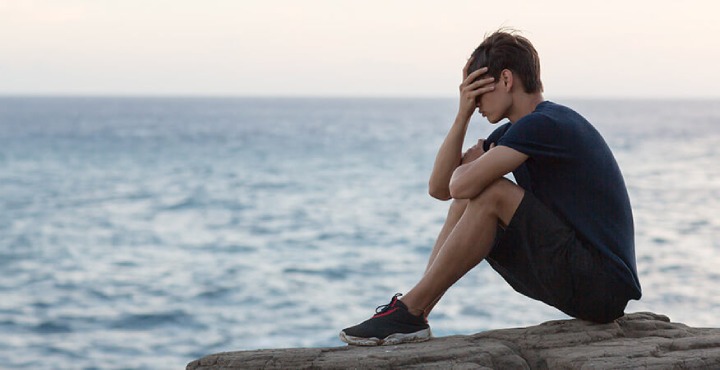Aquaphobia or fear of water is a particular type of phobia in which the person suffering from it is anxious when seeing or thinking about it and is afraid of doing things like bathing, swimming in the pool, and any other type of water activity. Many people with Aquaphobia have had traumatic experiences related to water in the past. You will read everything you need to know about Aquaphobia in this article.
What is Aquaphobia?
Aquaphobia is a type of anxiety disorder in which a person suffers from intense fear when thinking about or seeing water and may avoid going to places such as pools or lakes. In some people, this phobia is so fierce that they person feel anxious even while taking a shower, washing their face, or brushing their teeth.
Who is more susceptible to Aquaphobia?
The factors that make a person more susceptible to fear of water are:
- panic disorder;
- anxiety disorder;
- Suffering from other types of phobias ;
- Substance abuse disorders.
Phobias related to Aquaphobia include:
- Simophobia (fear of waves);
- Ablotophobia (fear of bathing);
- Thalassophobia (fear of large volumes of water);
- Megalohydrothalassophobia (fear of underwater creatures or objects).
Signs of fear of water
Symptoms of Aquaphobia range from mild to severe. The most common symptoms of this disorder are severe anxiety when approaching water or thinking about it, and other symptoms include:
- nausea ;
- heavy sweating;
- dizziness or fainting;
- pale skin;
- increase of heart rate;
- The feeling of extreme panic;
- sleep problems ( insomnia );
- Spontaneous tremors or muscle spasms.
Causes of fear of water
The possible causes of Aquaphobia are:
- Traumatic events in the past: People who have experienced some water-related trauma in the past may develop Aquaphobia. For example, drowning in water is one of the experiences that make a person afraid of water.
- Negative stories about water: the reason for Aquaphobia in some people is what they saw and heard in their childhood. Listening to scary stories about water and humans or ships drowning or watching scary movies about water-related incidents are possible causes of Aquaphobia.
- Family history: If one of the parents or close relatives of the person has a phobia or anxiety disorder, the possibility of the person suffering from Aquaphobia increases.
- Modeling: seeing or hearing the words of people with water phobia may cause a person to develop this phobia.
Diagnosis of Aquaphobia
If Aquaphobia is severe enough to disrupt a person’s life, a doctor may refer them to a mental health professional. Things that make the psychotherapist suspect Aquaphobia include:
- Fear of water has disturbed a person’s life.
- Contact with water can cause severe anxiety.
- Fear of water prevents a person from going to the park, swimming pool, or picnic by the lake.
- Anxiety and fear caused by seeing water or thinking about it have lasted for more than six months.
Cure fear of water
1. Exposure therapy
Exposure therapy is the first and foremost method of treating fear of water. In this treatment method, the psychotherapist gradually exposes the person to situations and images that trigger Aquaphobia and helps the affected person inhibit the reaction to seeing or thinking about water. More than 90% of people with Aquaphobia recover with exposure therapy. The steps of exposure therapy to treat fear of water are:
- Practicing breathing and relaxation techniques before and during exposure to the stimulus;
- viewing images or videos of water;
- Seeing water in a tub, glass, or sink;
- touching the water;
- Looking at the pool full of water and approaching it,
- Going into the pool.
2. cognitive behavioral therapy (CBT)
This method teaches the person to react correctly when faced with phobic situations and stimuli. Many therapists use CBT in combination with exposure therapy or hypnotherapy.
3. Dialectical Behavior Therapy (DBT)
This method is a modified form of cognitive behavioral therapy and teaches a person to live in the moment. With the help of this therapy, a person can deal with anxiety and distress and maintain his relationships with others.
4. Hypnotherapy
Therapists use guided relaxation techniques and focused attention to help change the perspective of a person with Aquaphobia. They may also use hypnotherapy to find the underlying cause of the fear of water.
5. drug therapy
Anti-anxiety and antidepressant medications may reduce the symptoms of Aquaphobia. Most of the time, therapists prescribe these drugs along with cognitive behavioral therapy. If Aquaphobia leads to sleep disorders, the doctor will also prescribe sleep medicine for the sufferer.
6. Yoga, mindfulness and meditation
Regular practice of yoga movements reduces a person’s stress. Mindfulness-based stress reduction (MBSR) teaches a person to control anxiety in the moment. Meditation may also be effective for focusing on breathing and preventing panic attacks.
Complications of Aquaphobia

Severe Aquaphobia reduces a person’s quality of life. The affected person may not want to take a bath or shower, and not observing personal hygiene may cause the disease or harm his self-esteem.
The thought of meeting friends or family at the beach or pool may also cause a person with Aquaphobia to become highly anxious, isolated, and distant from their surroundings and loved ones.
Some people with Aquaphobia may have a panic attack, the symptoms of which are:
- Sweating;
- Shortness of breath;
- nausea;
- Chest pain ;
- increase of heart rate;
- Feeling dizzy or lightheaded.
Constantly worrying about panic attacks may lead to panic disorder.
Common questions about fear of water
1. What is the difference between hydrophobia and Aquaphobia?
Hydrophobia is a type of fear of water that is mainly seen in people with rabies. People who fear water in rabies experience muscle spasms when they hear, see, or taste water. Aquaphobia is an intense fear of water unrelated to a person’s physical condition or illness.
2. Which age group is more susceptible to Aquaphobia?
This disorder is more common in children.
3. What are the triggers of Aquaphobia?
Anything related to water may cause symptoms of Aquaphobia. Triggers for Aquaphobia include seeing or thinking about water in:
- tub, shower, or sink;
- movies or television shows;
- pool, lake, sea, or river;
- Water fountains in parks or shopping centers.
final word
People with Aquaphobia experience intense fear when they see or think about water. These people may fear drinking water, showers, or swimming pools. Applying water fear treatment methods makes a person feel better about contact with water.
Have you or your loved ones had this phobia? What experience do you have in this field? Please share your valuable comments and experiences with us and our dear users.
Warning! This article is only for educational purposes;d to use it, it is necessary to consult a doctor or specialist.



